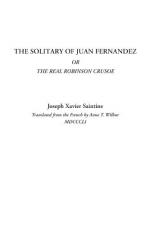‘Alexander Selkirk—from Largo, Scotland, Oct. 27, 1704.’
His exile from the world had therefore lasted four years and three months.
Notwithstanding the interest excited by his misfortunes, by his name, his accent, more than by his language, Captain Rogers, an honorable and humane man, but of extreme severity on all that appertained to discipline, recognized him as a British subject, suspected him to be a deserter from the English navy, and gave orders that he should be put under guard, pending a definitive decision.
The sailors commissioned to this office did not find it an easy thing to guard a prisoner who could climb the trees like a squirrel, and outstrip them all in a race. As a precaution, they commenced by binding him firmly to the same cedar on which his name was engraved. There the unfortunate Selkirk figured as a curious animal, ornamented with a label.
Afterwards, more for pastime than through mischief, they tormented him with questions, to obtain from him hesitating or almost senseless replies, which bewildered him much; then they began to examine, with childish surprise, the length of his beard, of his hair and nails; the prodigious development of his muscles; his bare feet, so hardened by travel, that they seemed to be covered with horn moccasins. Having found beneath his goat-skin rags, a knife, whose blade, by dint of use and sharpening, was almost reduced to the proportions of that of a penknife, they took it away to examine it; but on seeing himself deprived of this single weapon, the only relic of his shipwreck, the prisoner struggled, uttering wild howls; they restored it to him.
At the hour of repast, Selkirk had, like the rest, his portion of meat and biscuit. He ate the biscuit, manifesting great satisfaction; but he, who had at first suffered so much from being deprived of salt, found in the meat a degree of saltness insupportable. He pointed to the stream; one of his guards courteously offered him his gourd, containing a mixture of rum and water; he approached it to his lips, and immediately threw it away with violence, as if it had burned him.
At evening, he was transported on board.
A few days after he began to acquire a taste for common food; his ideas became more definite; speech returned to his lips more freely and clearly; but liberty of motion was not yet restored to him, a new captivity opened before him, and his irritation at this was presenting an obstacle to the complete restoration of his faculties, when God, who had so deeply tried him, came to his assistance.




